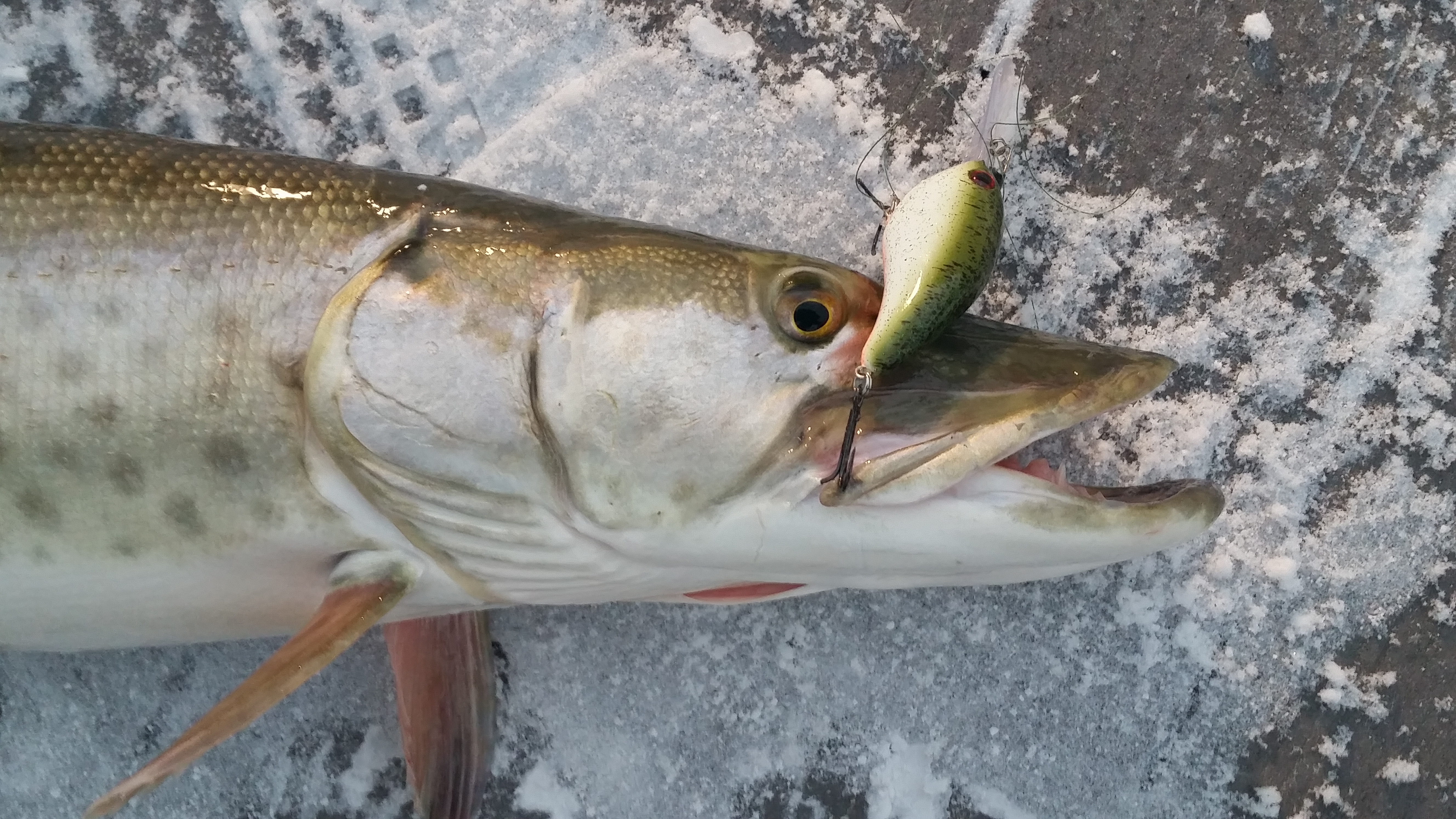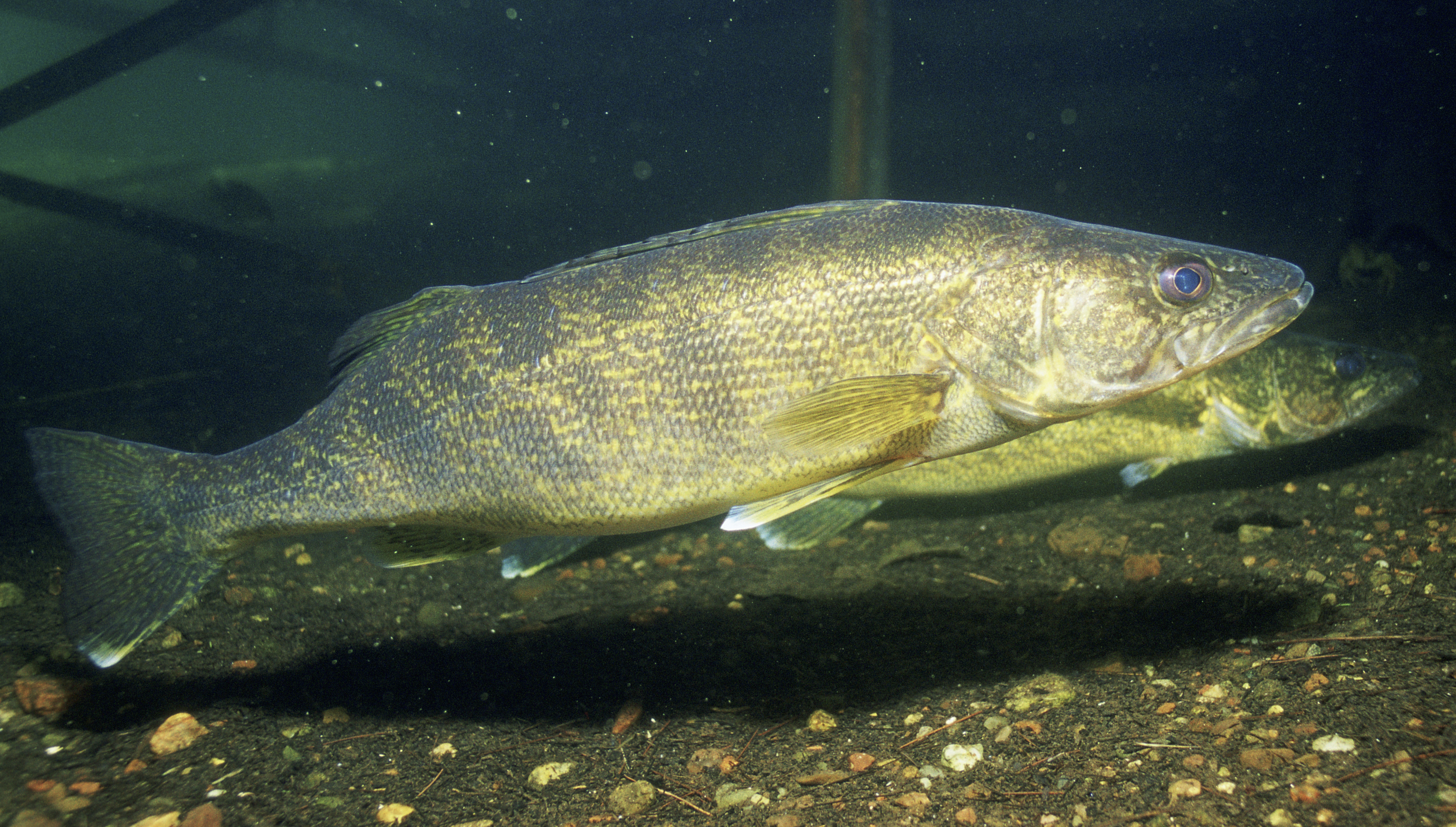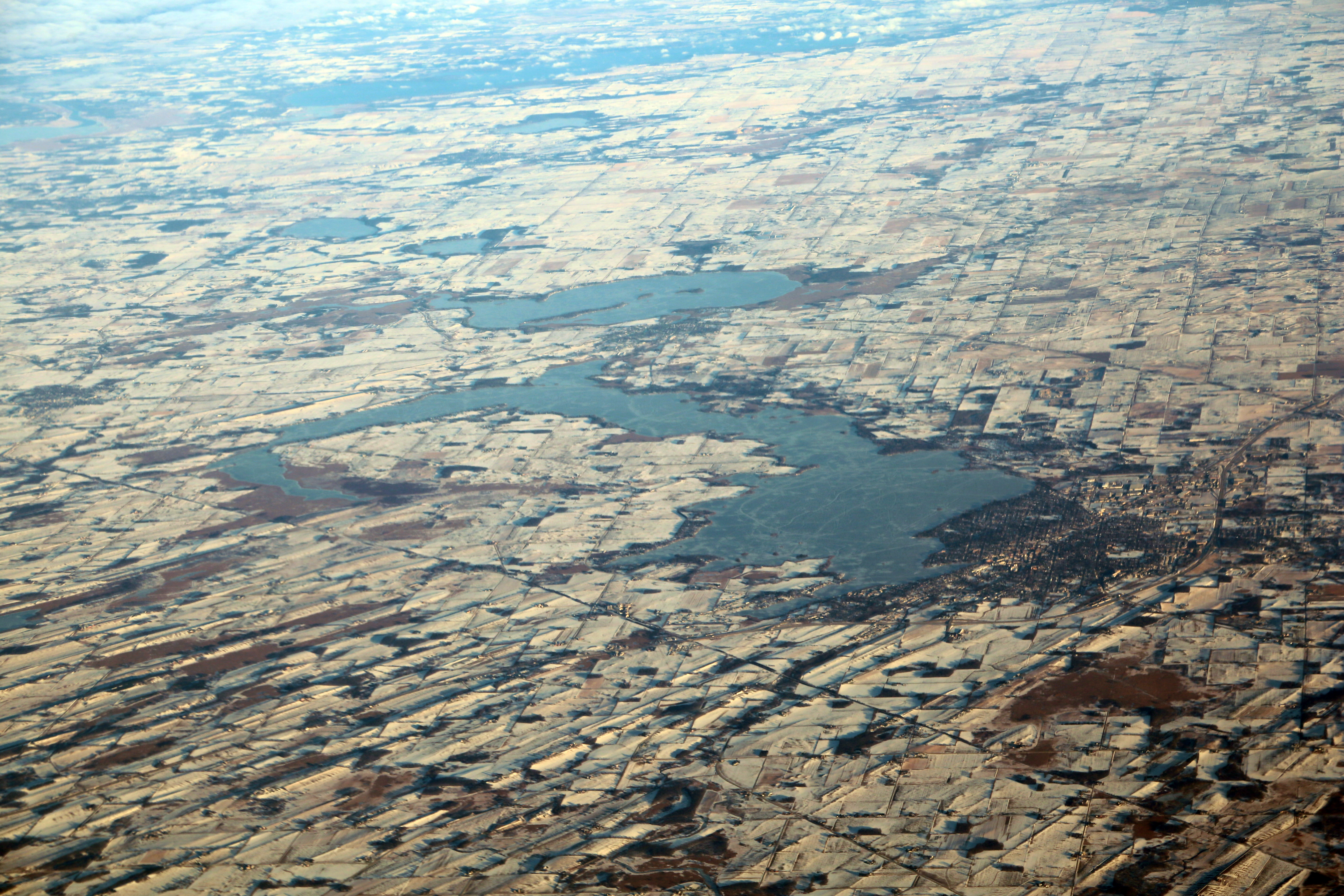|
Fox Lake (Wisconsin)
Fox Lake is a 2,713 acre lake in Dodge County, Wisconsin. The City of Fox Lake, and the communities of Lyndon Dale and Delbern Acres are found along the shoreline. There are two boat landings that are open to the public, found in parks on the northwest and southeast sides of the lake. Fish present in the lake are Panfish, Muskellunge, Largemouth Bass, Northern Pike, and Walleye. Fox Lake is split by the peninsula, that the community of Lyndon Dale is located on, in the south end of the lake. This forms a bay known as The Jug, near the City of Fox Lake. According to the DNR, the bottom of the lake is 1% sand, 30% gravel, and 69% muck. The lake goes through the Fox Lake Dam, into Mill Creek, then flows to Beaver Dam Lake. The Fox Lake Correctional Institution is less than a mile from the north shore of the lake. Parks and boat landings Fox Lake has two public parks. Clausen Park, in the City of Fox Lake, and Town Park on the north west side of the lake. Both parks have public ... [...More Info...] [...Related Items...] OR: [Wikipedia] [Google] [Baidu] |
Dodge County, Wisconsin
Dodge County is a county located in the U.S. state of Wisconsin. As of the 2020 census, the population was 89,396. Its county seat is Juneau. The county was created from the Wisconsin Territory in 1836 and organized in 1844. Dodge County comprises the Beaver Dam, WI Micropolitan Statistical Area, which is included in the Milwaukee- Racine- Waukesha, WI Combined Statistical Area. Geography According to the U.S. Census Bureau, the county has a total area of , of which is land and (3.5%) is water. The 6,718 acre Beaver Dam Lake and the 2,713 acre Fox Lake are found within the county. Adjacent counties * Fond du Lac County – northeast * Washington County – east * Waukesha County – southeast * Jefferson County – south * Dane County – southwest * Columbia County – west * Green Lake County – northwest National protected area * Horicon National Wildlife Refuge (part) Climate Demographics 2020 census As of the census of 2020, the population was 89,396 ... [...More Info...] [...Related Items...] OR: [Wikipedia] [Google] [Baidu] |
Wisconsin
Wisconsin () is a state in the upper Midwestern United States. Wisconsin is the 25th-largest state by total area and the 20th-most populous. It is bordered by Minnesota to the west, Iowa to the southwest, Illinois to the south, Lake Michigan to the east, Michigan to the northeast, and Lake Superior to the north. The bulk of Wisconsin's population live in areas situated along the shores of Lake Michigan. The largest city, Milwaukee, anchors its largest metropolitan area, followed by Green Bay and Kenosha, the third- and fourth-most-populated Wisconsin cities respectively. The state capital, Madison, is currently the second-most-populated and fastest-growing city in the state. Wisconsin is divided into 72 counties and as of the 2020 census had a population of nearly 5.9 million. Wisconsin's geography is diverse, having been greatly impacted by glaciers during the Ice Age with the exception of the Driftless Area. The Northern Highland and Western Upland along wi ... [...More Info...] [...Related Items...] OR: [Wikipedia] [Google] [Baidu] |
Fox Lake, Wisconsin
Fox Lake is a city in Dodge County, Wisconsin, United States. The population was 1,519 at the 2010 census. The city is located within the Town of Fox Lake. History Established in 1838, Fox Lake was the first settlement in Dodge County. The first inhabitants were Winnebago Indians who had named the area "Hosh-a-rac-ah-tah", meaning "good land". The area was later named Fox Lake, either in honor of a Winnebago Indian named Big Fox who saved a lost trapper or for the English translation of the Indian name of the town. Geography Fox Lake is located at 43°33'45" North, 88°54'35" West (43.56265, -88.90994). According to the United States Census Bureau, the city has a total area of , of which, is land and is water. The 2,713 acre lake also known as Fox Lake is found north of the city. Demographics 2010 census As of the census of 2010, there were 1,519 people, 663 households, and 400 families living in the city. The population density was . There were 801 housing units at a ... [...More Info...] [...Related Items...] OR: [Wikipedia] [Google] [Baidu] |
Lyndon Dale, Wisconsin
Lyndon Dale is an unincorporated community located in the town of Fox Lake, Dodge County, Wisconsin Wisconsin () is a state in the upper Midwestern United States. Wisconsin is the 25th-largest state by total area and the 20th-most populous. It is bordered by Minnesota to the west, Iowa to the southwest, Illinois to the south, Lake M ..., United States. The community is found on a peninsula in Fox Lake. Notes Unincorporated communities in Dodge County, Wisconsin Unincorporated communities in Wisconsin {{DodgeCountyWI-geo-stub ... [...More Info...] [...Related Items...] OR: [Wikipedia] [Google] [Baidu] |
Delbern Acres, Wisconsin
Delbern Acres is an unincorporated community located in the town of Fox Lake, Dodge County, Wisconsin Wisconsin () is a state in the upper Midwestern United States. Wisconsin is the 25th-largest state by total area and the 20th-most populous. It is bordered by Minnesota to the west, Iowa to the southwest, Illinois to the south, Lake M ..., United States. The community is located on the north shore of Fox Lake. Notes Unincorporated communities in Dodge County, Wisconsin Unincorporated communities in Wisconsin {{DodgeCountyWI-geo-stub ... [...More Info...] [...Related Items...] OR: [Wikipedia] [Google] [Baidu] |
Muskellunge
The muskellunge ''(Esox masquinongy)'', often shortened to muskie, musky or lunge is a species of large freshwater predatory fish native to North America. It is the largest member of the pike family, Esocidae. Origin of name The name "muskellunge" originates from the Ojibwe words ''maashkinoozhe'' (meaning "great fish"), ''maskinoše'' or ''mashkinonge'' (meaning "big pike" or "ugly pike") and the Algonquin word ''maskinunga'', which are borrowed into the Canadian French words ''masquinongé'' or ''maskinongé''. In English, before settling on the common name "muskellunge", there have been at least 94 common names applied to this species, including but not limited to: ''muskelunge'', ''muscallonge'', ''muskallonge'', ''milliganong'', ''maskinonge'', ''maskalonge'', ''mascalonge'', ''maskalung'', ''muskinunge'' and ''masquenongez''. The word muskellunge is German and means "muscle lung". Description Muskellunge closely resemble other esocids such as the northern pike and Ameri ... [...More Info...] [...Related Items...] OR: [Wikipedia] [Google] [Baidu] |
Largemouth Bass
The largemouth bass (''Micropterus salmoides'') is a carnivorous freshwater gamefish in the Centrarchidae ( sunfish) family, a species of black bass native to the eastern and central United States, southeastern Canada and northern Mexico, but widely introduced elsewhere. It is known by a variety of regional names, such as the widemouth bass, bigmouth bass, black bass, bucketmouth, largies, Potter's fish, Florida bass, Florida largemouth, green bass, bucketmouth bass, Green trout, gilsdorf bass, Oswego bass, LMB, and southern largemouth and northern largemouth. The largemouth bass is the state fish of Georgia and Mississippi, and the state freshwater fish of Florida and Alabama. Taxonomy The largemouth bass was first formally described as ''Labrus salmoides'' in 1802 by the French naturalist Bernard Germain de Lacépède with the type locality given as the Carolinas. Lacépède based his description on an illustration of a specimen collected by Louis Bosc near Charleston, S ... [...More Info...] [...Related Items...] OR: [Wikipedia] [Google] [Baidu] |
Northern Pike
The northern pike (''Esox lucius'') is a species of carnivorous fish of the genus '' Esox'' (the pikes). They are typical of brackish and fresh waters of the Northern Hemisphere (''i.e.'' holarctic in distribution). They are known simply as a pike in Britain, Ireland, and most of Eastern Europe, Canada and the United States. Pike can grow to a relatively large size: the average length is about , with maximum recorded lengths of up to and published weights of . The IGFA currently recognizes a pike caught by Lothar Louis on Greffern Lake, Germany, on 16 October 1986, as the all-tackle world-record northern pike. Northern pike grow to larger sizes in Eurasia than in North America, and typically grow to larger sizes in coastal than inland regions of Eurasia. Etymology The northern pike gets its common name from its resemblance to the pole-weapon known as the pike (from the Middle English for 'pointed'). Various other unofficial trivial names are common pike, Lakes pike, great n ... [...More Info...] [...Related Items...] OR: [Wikipedia] [Google] [Baidu] |
Walleye
The walleye (''Sander vitreus'', synonym ''Stizostedion vitreum''), also called the yellow pike or yellow pickerel, is a freshwater perciform fish native to most of Canada and to the Northern United States. It is a North American close relative of the European zander, also known as the pikeperch. The walleye is sometimes called the yellow walleye to distinguish it from the blue walleye, which is a color morph that was once found in the southern Ontario and Quebec regions, but is now presumed extinct. However, recent genetic analysis of a preserved (frozen) 'blue walleye' sample suggests that the blue and yellow walleye were simply phenotypes within the same species and do not merit separate taxonomic classification. In parts of its range in English-speaking Canada, the walleye is known as a pickerel, though the fish is not related to the true pickerels, which are members of the family ''Esocidae''. Walleyes show a fair amount of variation across watersheds. In general, fis ... [...More Info...] [...Related Items...] OR: [Wikipedia] [Google] [Baidu] |
Beaver Dam Lake (Wisconsin)
Beaver Dam Lake is a 6,718 acre lake in Dodge County, Wisconsin. The communities of Beaver Dam, South Beaver Dam, Sunset Beach, Beaver Edge, Fox Lake Junction border the lake. The fish present in the lake are Panfish, Largemouth Bass, Northern Pike, and Walleye. The lake is created by a dam located in the City of Beaver Dam at Haskell Street and flows into the Beaver Dam River. There are seven public boat landings and numerous parks along the lake shore. Water from Fox Lake flows through the Mill Creek into Beaver Dam Lake. Islands There are 26 islands in Beaver Dam Lake ranging from 0.1 to 2.8 acres. All of the islands are privately owned. See also * List of lakes in Wisconsin There are 15,074 documented lakes in Wisconsin.Wisconsin Dept. of Natural Resources, Wisconsin Lakes'. 2009. Of these, about 40 percent have been named. They range in size from small one-and two-acre () ponds to Lake Winnebago. They range in dept ... References {{authority control Lakes o ... [...More Info...] [...Related Items...] OR: [Wikipedia] [Google] [Baidu] |
Fox Lake Correctional Institution
The Fox Lake Correctional Institution is a medium-security state prison for men located in Fox Lake, Dodge County, Wisconsin Dodge County is a county located in the U.S. state of Wisconsin. As of the 2020 census, the population was 89,396. Its county seat is Juneau. The county was created from the Wisconsin Territory in 1836 and organized in 1844. Dodge County com ..., owned and operated by the Wisconsin Department of Corrections. In 2008 the facility has a rated capacity of 691 inmates and an actual population of 1,033. The facility first opened in September 1962. References {{State prisons in Wisconsin Prisons in Wisconsin Buildings and structures in Dodge County, Wisconsin 1962 establishments in Wisconsin ... [...More Info...] [...Related Items...] OR: [Wikipedia] [Google] [Baidu] |
Wisconsin Department Of Natural Resources
The Wisconsin Department of Natural Resources (WDNR) is a government agency of the U.S. state of Wisconsin charged with conserving and managing Wisconsin's natural resources. The Wisconsin Natural Resources Board has the authority to set policy for the WDNR. The WDNR is led by the Secretary, who is appointed by the Governor of Wisconsin. The WDNR develops regulations and guidance in accordance with laws passed by the Wisconsin Legislature. It administers wildlife, fish, forests, endangered resources, air, water, waste, and other issues related to natural resources. The central office of the WDNR is located in downtown Madison, near the state capitol. Mission The mission of the WDNR is "To protect and enhance our natural resources: our air, land and water; our wildlife, fish and forests and the ecosystems that sustain all life. To provide a healthy, sustainable environment and a full range of outdoor opportunities. To ensure the right of all people to use and enjoy these resour ... [...More Info...] [...Related Items...] OR: [Wikipedia] [Google] [Baidu] |





